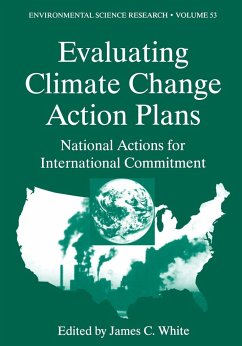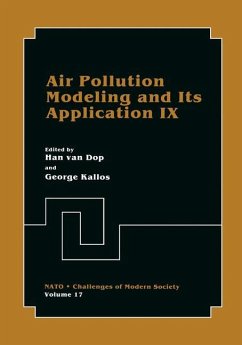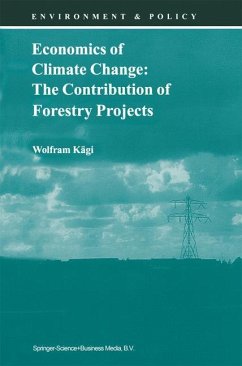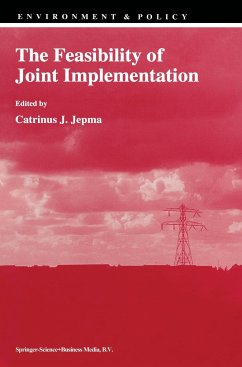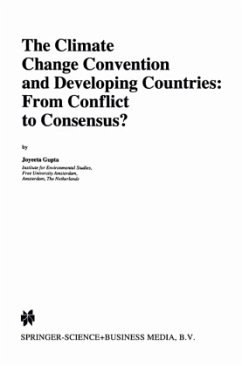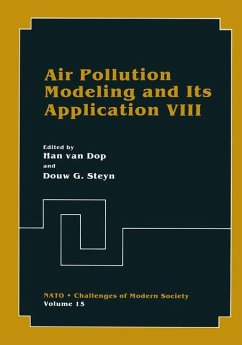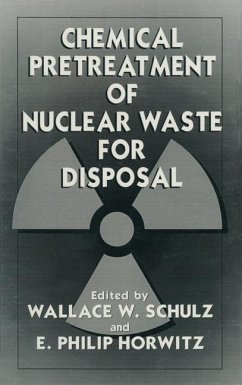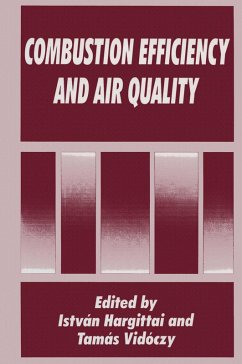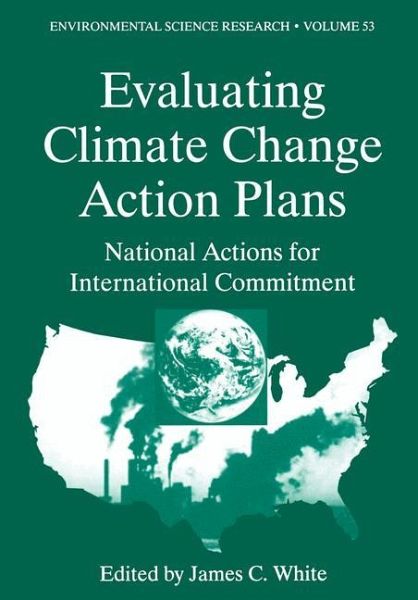
Evaluating Climate Chanage Action Plans
National Actions for International Commitment
Herausgegeben: White, James C.;Mitarbeit: Wagner, William R.; Petry, Wendy H.
Versandkostenfrei!
Versandfertig in 1-2 Wochen
77,99 €
inkl. MwSt.

PAYBACK Punkte
39 °P sammeln!
The atmospheric scientists of the world are in general agreement that the threat of climate change is real, inevitable, and serious. The accumulation of greenhouse gases, principally CO from burning fossil fuels, is the main cause. 2 At the 1992 United Nations Conference on Environment and Development in Rio de Janeiro, 166 nations signed the Framework Convention on Climate Change and agreed to draw up plans to contain greenhouse gases at 1990 levels. Never in world history had so many nations agreed on anything. . Developing these plans has not been easy and no two countries have had the same...
The atmospheric scientists of the world are in general agreement that the threat of climate change is real, inevitable, and serious. The accumulation of greenhouse gases, principally CO from burning fossil fuels, is the main cause. 2 At the 1992 United Nations Conference on Environment and Development in Rio de Janeiro, 166 nations signed the Framework Convention on Climate Change and agreed to draw up plans to contain greenhouse gases at 1990 levels. Never in world history had so many nations agreed on anything. . Developing these plans has not been easy and no two countries have had the same circumstances and conditions to meet. Countries have not approached their problems in the same manner and many nations find the task almost impossible to solve under the ground rules set up in Rio. This volume contains the papers presented at a meeting organized by the Center for Environmental Information and held in Washington, D.C., November 30 to December 2, 1994. The principal aim of the meeting was to evaluate the U.S. and other national climate action plans which had been released a few weeks before. Specifically, these papers concentrate on an overview of the U.S. plan; the perspec tives of business, industry, electric utilities, and environmental organizations; mitigation actions in various plans; integrated assessment; an overview of plans from various nations; and the need to amend the convention. The meeting was sponsored and cosponsored by 35 governmental agencies, environ mental groups, industrial organizations, and educational institutions.





